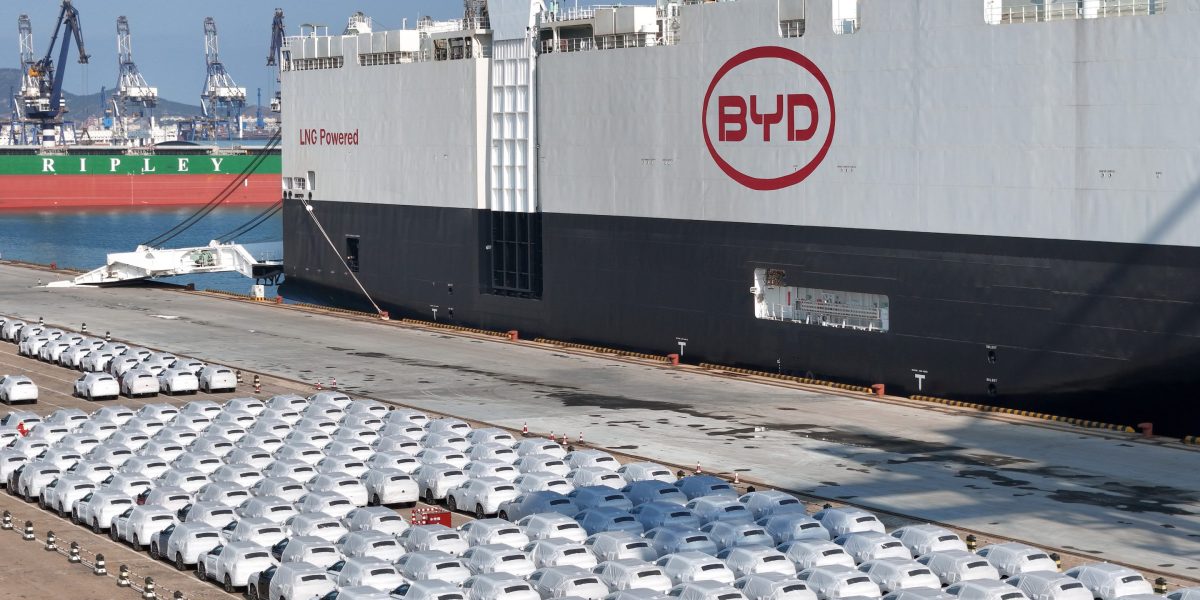China might have problems with its economy, but as an exporter of affordable electric vehicles, it’s on a tear. Now, investigators from the European Commission will visit Chinese EV makers as part of a probe into whether they have an unfair advantage thanks to government subsidies.
In the coming weeks, the EU investigators will visit BYD, Geely, and SAIC, according to Reuters. Their visits will help determine whether the EU imposes higher tariffs to protect European carmakers.
BYD recently overtook Elon Musk’s Tesla as the global leader in sales of electric vehicles. Backed by Warren Buffett’s Berkshire Hathaway, the carmaker keeps its costs low partly by owning the entire supply chain of its EV batteries, significant since a battery accounts for roughly 40% of an electric vehicle’s price.
But as the existence of the EU’s anti-subsidy investigation suggests, many worry there’s more than supply-chain efficiencies behind the low prices of Chinese EVs. The visits promise to be central to the EU probe, announced in September and set to run for 13 months.



The article doesn’t suggest it’s impossible. It’s difficult because you have to build up a competitive business from nothing in addition to the one you’re already building up.
And generally you have to come up with the money to build it yourself or from the private sector, for a venture that won’t be making much money itself. And then say you somehow manage to build the vertical, in our loosely regulated free market economy, this vertical is likely to have monopolistic power over the market, which is bad for people in the system, apart from the ones participating in the vertical.
I’m not advocating that our loosely regulated free market economy is good BTW. I’m simply trying to state its implications on vertical integration and vice versa. Vertical integration is clearly more efficient than the alternative, but free market economies allow it to create harmful effects.